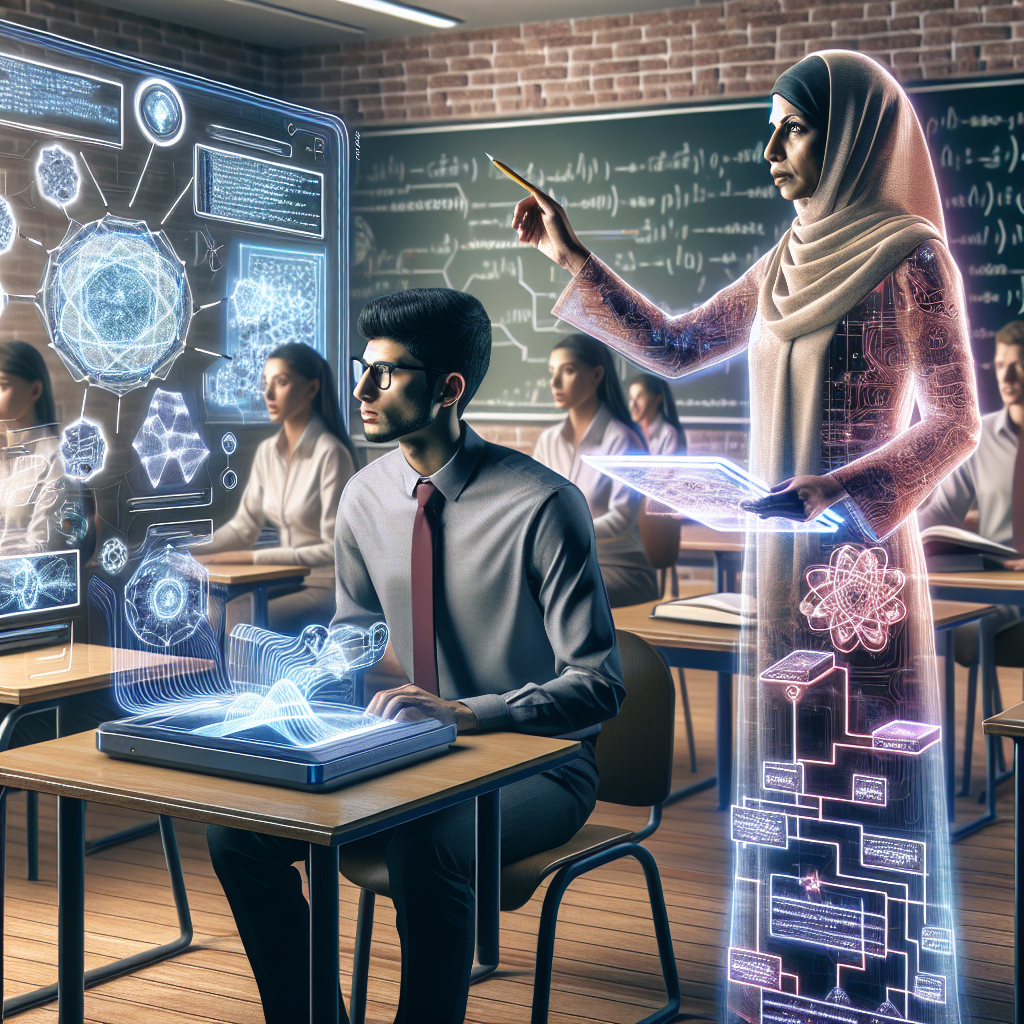Revolutionizing Computer Science Classes: How ChatGPT is Becoming the TA’s Best Friend

Revolutionizing Computer Science Classes: How ChatGPT is Becoming the TA’s Best Friend
Integrating technology into education is reshaping how we think about teaching and learning, particularly in complex fields like computer science. Imagine having a virtual assistant that can answer your questions, help you debug code, and even provide additional practice problems. Sounds like a dream, right? Well, the reality is here with ChatGPT, the AI tool that’s transforming data structures and algorithms courses – but what happens when you add a human teaching assistant (TA) into the mix? Let’s dive into a fascinating study on this powerful duo.
Unpacking the Power Pair: ChatGPT and TAs
Large Language Models (LLMs) like ChatGPT are starting to take center stage in educational settings. But it turns out that their real potential shines when they’re paired with TAs. In data structures and algorithms (DSA) courses, which are notoriously tough but essential for budding computer scientists, the dual force of ChatGPT and TA supervision offers a fresh approach that enhances learning outcomes.
Why focus on DSA? Because understanding how algorithms work and mastering the art of efficient programming are foundational skills in computer science. Students need the right blend of speed and memory management, but the complexity of these topics often makes them a headache – that’s where technology comes in to save the day.
How ChatGPT Supercharges Learning with Human Oversight
Enhancing Comprehension and Engagement
The study centered on leveraging ChatGPT with structured prompts, under the watchful eyes of TAs, for a group of undergrad computer science students. ChatGPT offers quick answers and generates diverse practice problems, but it’s the TAs who ensure students digest this help correctly. They provide context, clarify misunderstandings, and guide students through the maze of algorithm design and problem-solving, thereby increasing their engagement and comprehension.
Overcoming Challenges with a Hybrid Approach
While ChatGPT excels at routine and repetitive educational tasks, it sometimes hits a wall with more intricate problems, especially those requiring deep logical reasoning or visual representation – picture tasks like graph traversal or visualizing complex data trees. By using different ChatGPT versions, each with unique strengths, the study developed a hybrid approach that effectively balanced AI and human talents, enhancing both simple and complex learning experiences.
The Real Life Impact of This Innovation
Academic Performance and Real-World Readiness
So, what happens when you throw ChatGPT and a dedicated TA into the same room? Students perform better! The group experiencing this combined resource scored consistently higher on exams and assignments compared to their peers relying solely on traditional TA support. This suggests a significant boost in understanding, thanks to the structured prompts guiding their learning journey.
Preparing Students for the Real World
Outside the classroom, skills gained from this kind of learning are directly translatable to the workplace. As tech industries increasingly lean into AI and machine learning, understanding how to leverage AI tools safely and smartly is invaluable. The balance of using ChatGPT’s convenience with human critical thinking adds an extra layer of competence that students carry forward in their careers.
Practical Implications: Tailoring AI for Education
Boosting Efficiency Without Sacrificing Integrity
The integration of tools like ChatGPT doesn’t just enhance student learning; it lightens the educators’ load. While TAs can focus on creative and complex instructional activities, AI can handle the repetitive, mundane tasks, all while ensuring quality through structured oversight. These models present a promising pathway to complement traditional education, making it more interactive and efficient while maintaining academic integrity.
The Future of AI in Education
The promising results from this experiment reveal a balanced approach to blending AI with human intelligence that could revolutionize education. Schools might start considering AI not to replace, but to supplement and enhance traditional teaching methods, offering personalized, scalable education solutions.
Key Takeaways
-
Balanced Integration is Key: The harmonious combination of ChatGPT’s fast problem-solving and the TA’s expert oversight provides a robust educational experience that bolsters student performance, particularly in complex courses like data structures and algorithms.
-
Structured Prompts Drive Success: Carefully crafted prompts ensure students don’t simply default to AI for answers but engage critically with the material, leading to deeper understanding and better exam outcomes.
-
Real-World Relevance: Skills gained from interacting with both AI and a living instructor prepare students for tech-driven work environments, adding significant value to their educational journey.
-
Human Touch Enhances AI Potential: The study demonstrates that AI in education demands ongoing human oversight to ensure its effective use, maintaining a high-quality learning environment.
As AI continues evolving, so must our approach to using it in classrooms. Combining the strengths of both computer and human brains might just be the key to unlocking a brighter future for education. Ready to meet your new TA? Just wait until you see what they’re capable of with ChatGPT’s help!
If you are looking to improve your prompting skills and haven’t already, check out our free Advanced Prompt Engineering course.
This blog post is based on the research article “Utilizing ChatGPT in a Data Structures and Algorithms Course: A Teaching Assistant’s Perspective” by Authors: Pooriya Jamie, Reyhaneh Hajihashemi, Sharareh Alipour. You can find the original article here.




